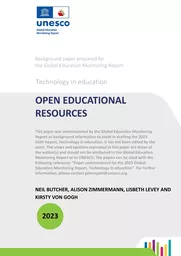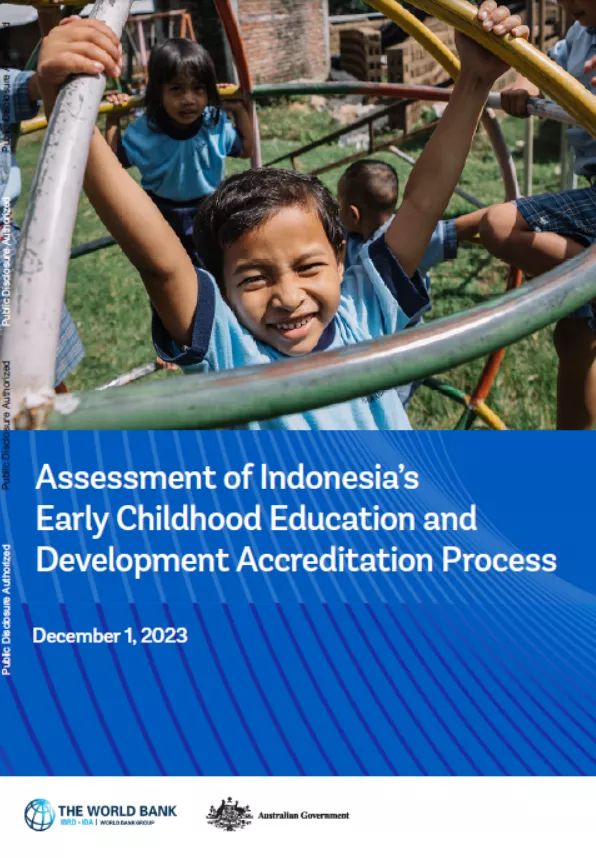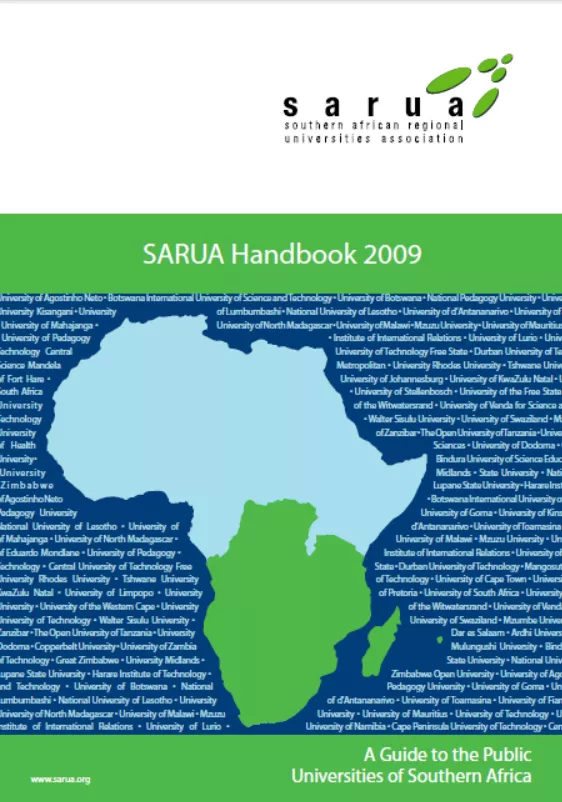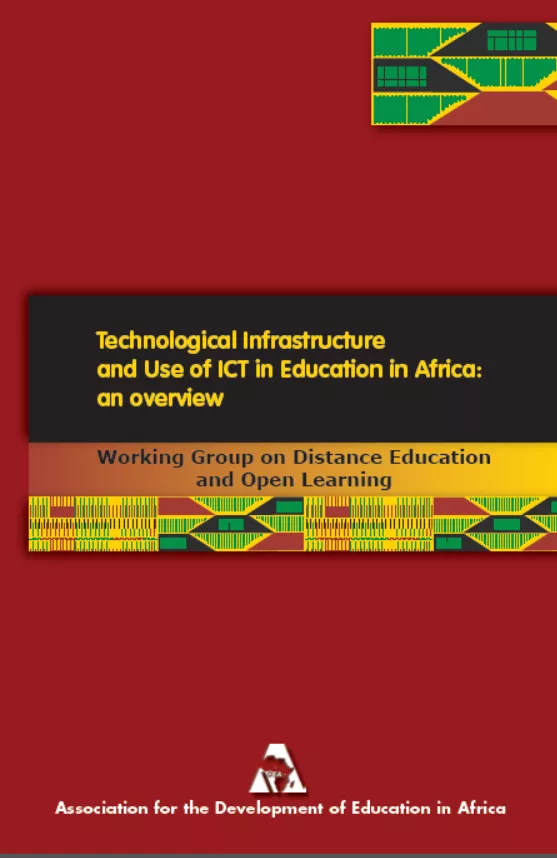Resources
Featured resources
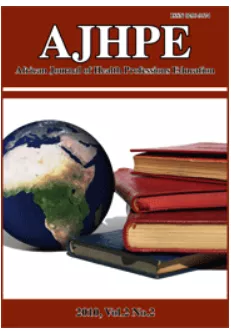
The African Health OER Network: Advancing health education in Africa through open educational resources
This report provides a summary of the African Health OER Network, focusing on the value proposition for the Network, our target audience, services offered, content developed by participants, participant motivations for creating OER, and a call to join the Network.
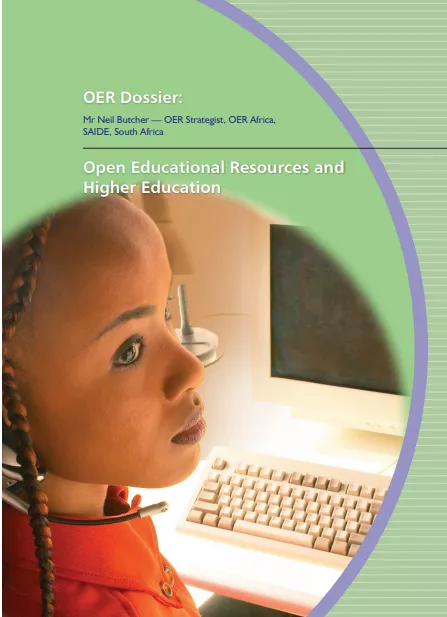
Open Educational Resources and Higher Education
This paper examines the concept of OER in more detail, offering a simple, clear definition, explaining the economic and educational potential behind that definition, introducing examples of OER practices around the world, exploring legal considerations, and highlighting some of the challenges to releasing the transformative
potential of OER.
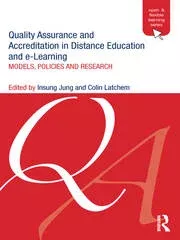
Chapter 5 - Quality Assurance for Distance Education in Sub-Saharan Africa
The exponential expansion of higher education enrolments throughout sub-Saharan Africa has led to the establishment of many new public and private universities offering face-to-face, blended and DE programmes. There is a growing need for QA frameworks at the national and institutional level. The chapter argues that there is still a great deal of work to be done, as there are significant variations in policies and procedures for QA and little has yet been done in regard to monitoring and assessing the quality of DE provision.

OER in South Africa: POERUP South Africa Case Study
This country case study outlines the education system in South Africa, ICT developments in education, relevant copyright laws and the various OER initiatives at national and institutional levels
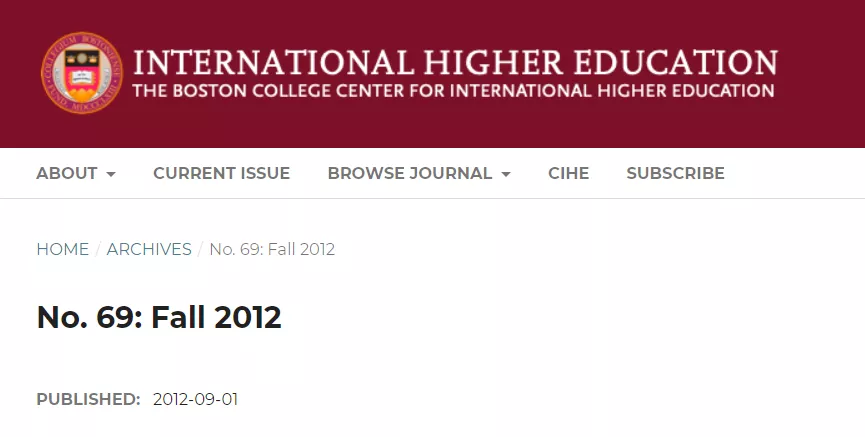
Growth of Information and Communications Technology at African Universities
Significant work has been carried out at the institutional level—by institutions and also through donor-funded projects. Established in 2008, the Partnership for Higher Education, Educational Technology Initiative aims to support ICT integration in African universities. Teaching and learning initiatives are supported that integrate use of technology and promoting collaborative knowledge creation and dissemination.
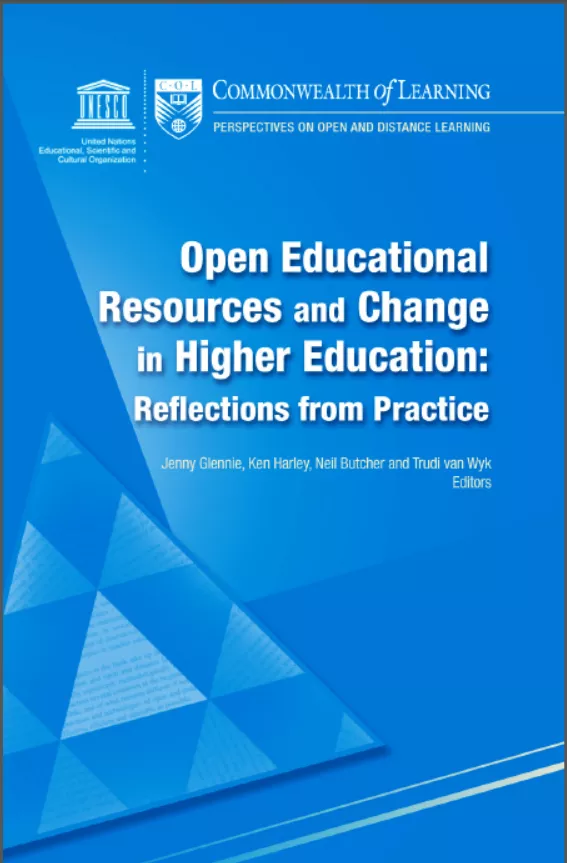
Introduction - Discourses in the Development of OER Practice and Policy
This introduction first sketches a contextual setting for the chapters of the book that follow. With reference to the existing literature, it begins by reviewing OER developments and some of the questions that have arisen from advances made thus far. Drawing inferences from these questions, we identify some of the more important gaps in the way OER research has been conducted. it argues that failure to begin exploring these gaps carries risks that could impede further OER progress.
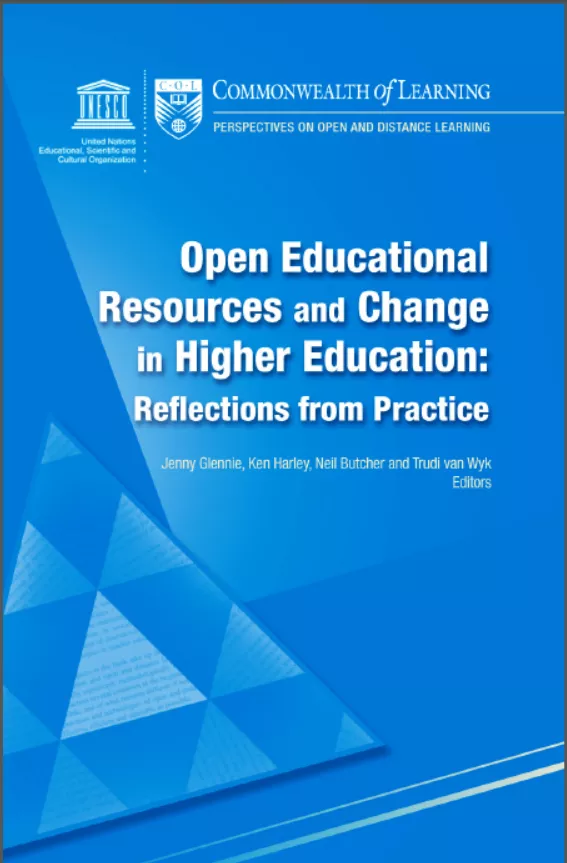
Chapter 13 - Experiences of Developing OER-Amenable Policies
Governments across the world are increasing the openness and transparency of their services, a move also taking place in the education sector in some countries, signifying commitment to openness and ensuring that adequate attention and funding is paid to open educational resources (OER). This chapter assesses the extent to which policies are being developed and/or modified to support effective use of open educational resources. However, despite the growth of OER at many institutions, surprisingly few have developed and implemented formal OER policies.
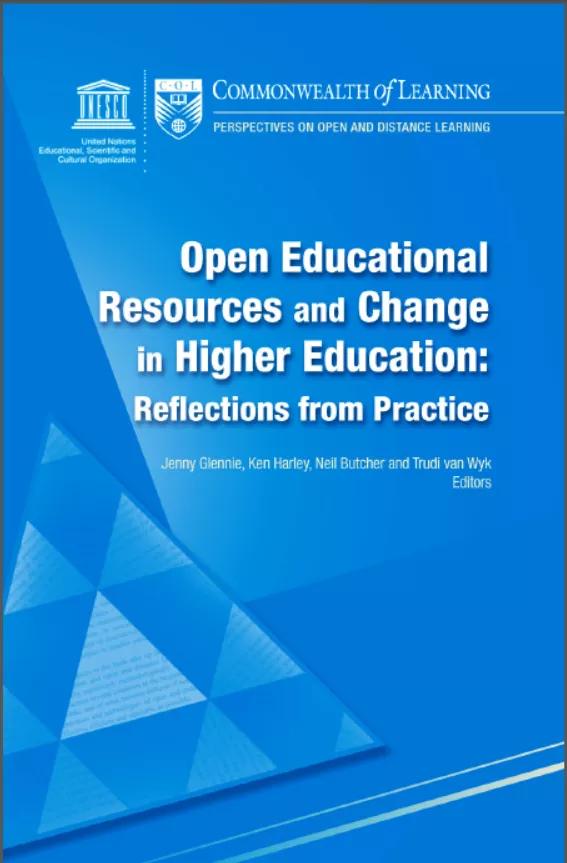
Chapter 12 - Sharing Existing Teaching Materials as OER: Key Considerations from Practice
Sharing of higher education teaching materials under open licenses is a growing global practice. Several models of adapting and sharing existing materials include: institutionally-driven initiatives that result in materials being shared, mostly through repositories; cascade models that have a strong mentoring component; use of network repositories; and conversion of commercial teaching resources for sharing as open educational resources (OER). The processes followed in these models are similar in many respects.
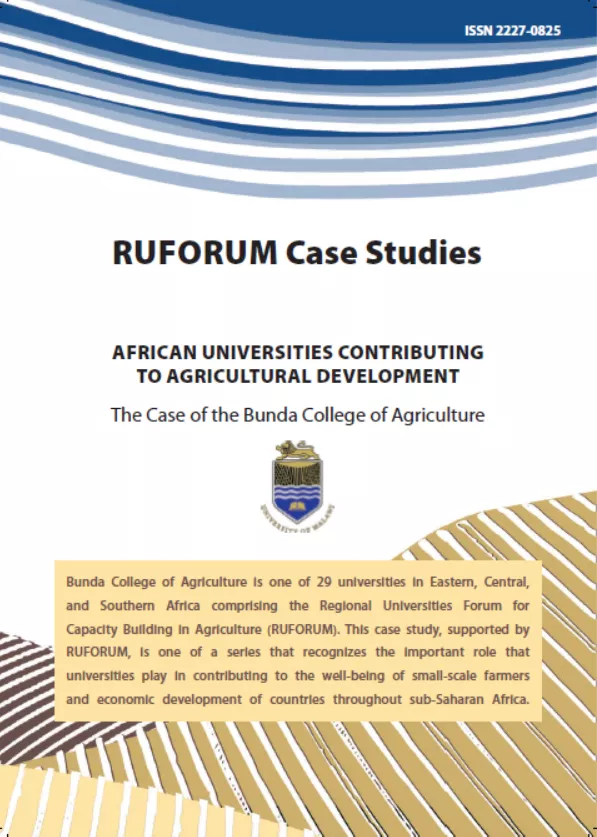
African Universities Contributing to Agricultural Development – the case of Bunda College of Agriculture
This case study, supported by RUFORUM, is one of a series that recognizes the important role that universities play in contributing to the well-being of small-scale farmers and economic development of countries throughout sub-Saharan Africa.
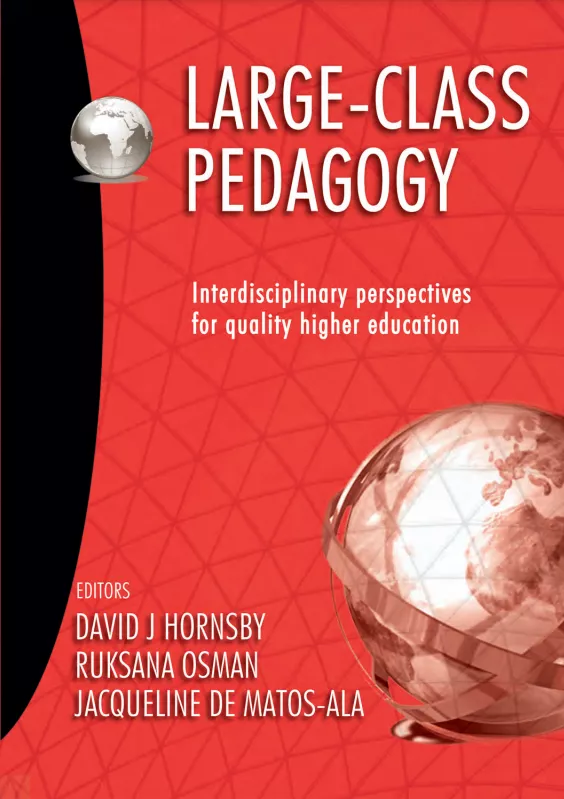
Chapter 4 - Harnessing open educational resources to help manage large classes
Rapid ICT development presents both opportunities and challenges for learners who face barriers to traditional means of delivering education, including those enrolled in increasingly large face-to-face classes. Digital systems are highly adaptable and flexible, and can be personalised to a wide variety of learning needs.
Browse resources
Search resources

The African Health OER Network: Advancing health education in Africa through open educational resources
This report provides a summary of the African Health OER Network, focusing on the value proposition for the Network, our target audience, services offered, content developed by participants, participant motivations for creating OER, and a call to join the Network.

Open Educational Resources and Higher Education
This paper examines the concept of OER in more detail, offering a simple, clear definition, explaining the economic and educational potential behind that definition, introducing examples of OER practices around the world, exploring legal considerations, and highlighting some of the challenges to releasing the transformative
potential of OER.

Chapter 5 - Quality Assurance for Distance Education in Sub-Saharan Africa
The exponential expansion of higher education enrolments throughout sub-Saharan Africa has led to the establishment of many new public and private universities offering face-to-face, blended and DE programmes. There is a growing need for QA frameworks at the national and institutional level. The chapter argues that there is still a great deal of work to be done, as there are significant variations in policies and procedures for QA and little has yet been done in regard to monitoring and assessing the quality of DE provision.

OER in South Africa: POERUP South Africa Case Study
This country case study outlines the education system in South Africa, ICT developments in education, relevant copyright laws and the various OER initiatives at national and institutional levels

Growth of Information and Communications Technology at African Universities
Significant work has been carried out at the institutional level—by institutions and also through donor-funded projects. Established in 2008, the Partnership for Higher Education, Educational Technology Initiative aims to support ICT integration in African universities. Teaching and learning initiatives are supported that integrate use of technology and promoting collaborative knowledge creation and dissemination.

Introduction - Discourses in the Development of OER Practice and Policy
This introduction first sketches a contextual setting for the chapters of the book that follow. With reference to the existing literature, it begins by reviewing OER developments and some of the questions that have arisen from advances made thus far. Drawing inferences from these questions, we identify some of the more important gaps in the way OER research has been conducted. it argues that failure to begin exploring these gaps carries risks that could impede further OER progress.

Chapter 13 - Experiences of Developing OER-Amenable Policies
Governments across the world are increasing the openness and transparency of their services, a move also taking place in the education sector in some countries, signifying commitment to openness and ensuring that adequate attention and funding is paid to open educational resources (OER). This chapter assesses the extent to which policies are being developed and/or modified to support effective use of open educational resources. However, despite the growth of OER at many institutions, surprisingly few have developed and implemented formal OER policies.

Chapter 12 - Sharing Existing Teaching Materials as OER: Key Considerations from Practice
Sharing of higher education teaching materials under open licenses is a growing global practice. Several models of adapting and sharing existing materials include: institutionally-driven initiatives that result in materials being shared, mostly through repositories; cascade models that have a strong mentoring component; use of network repositories; and conversion of commercial teaching resources for sharing as open educational resources (OER). The processes followed in these models are similar in many respects.

African Universities Contributing to Agricultural Development – the case of Bunda College of Agriculture
This case study, supported by RUFORUM, is one of a series that recognizes the important role that universities play in contributing to the well-being of small-scale farmers and economic development of countries throughout sub-Saharan Africa.

Chapter 4 - Harnessing open educational resources to help manage large classes
Rapid ICT development presents both opportunities and challenges for learners who face barriers to traditional means of delivering education, including those enrolled in increasingly large face-to-face classes. Digital systems are highly adaptable and flexible, and can be personalised to a wide variety of learning needs.

